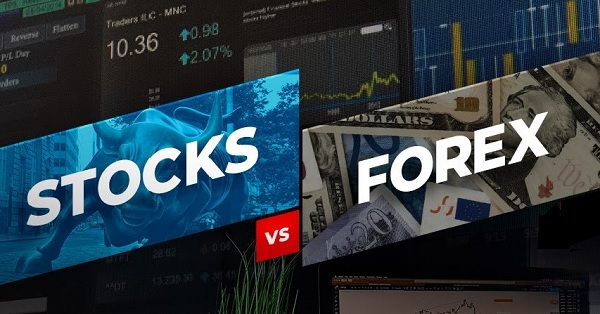
The foreign exchange (forex) market and the stock market are both vital components of the global financial system, each serving distinct purposes and catering to different types of investors.
The forex market, also known as the currency market, is where currencies are traded. It operates 24 hours a day, five days a week, and is decentralized, meaning there is no central exchange. Participants in the forex market include banks, financial institutions, corporations, and individual traders. The primary goal is to exchange one currency for another, with the value of currencies influenced by various factors such as economic indicators, geopolitical events, and interest rates.
On the other hand, the stock market is a centralized marketplace where shares of publicly traded companies are bought and sold. It is divided into various exchanges, such as the New York Stock Exchange (NYSE) and NASDAQ. Investors, including institutional and retail traders, buy and sell shares with the aim of capitalizing on the company's performance and future prospects. Stock prices are influenced by factors like earnings reports, economic conditions, and overall market sentiment.
One key distinction between the two markets is the nature of the assets traded. Forex focuses on currency pairs, with investors speculating on the relative strength or weakness of one currency against another. In contrast, the stock market involves the buying and selling of ownership stakes in companies, represented by shares.
Liquidity is another differentiating factor. The forex market is highly liquid due to its immense trading volume, allowing for swift execution of trades. In comparison, liquidity in the stock market can vary depending on the company's size, industry, and overall market conditions.
Risk and reward profiles also differ. Forex trading often involves higher leverage, which can amplify both gains and losses. Stock market investments, while subject to market fluctuations, generally entail lower leverage levels, making them potentially less volatile in comparison.
In summary, the forex market and stock market are distinct arenas within the financial landscape, catering to diverse investment strategies, preferences, and risk appetites. Each plays a crucial role in the global economy, providing avenues for capital allocation, risk management, and wealth